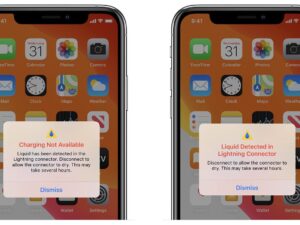Wondering how long it takes for an alternator to fully charge a battery? Look no further! In this informative article, we’ll explore the time it typically takes for an alternator to perform its charging duties. Whether you’re experiencing a dead battery or simply curious about the process, understanding how long it takes the alternator to charge the battery can be helpful. So, let’s dive into this topic and shed some light on the question, “How long does it take the alternator to charge the battery?”
How Long Does It Take for an Alternator to Charge a Battery?
The alternator plays a crucial role in the electrical system of your vehicle. It generates power to keep the battery charged, ensuring that the various electrical components function properly. But have you ever wondered how long it takes for an alternator to charge a battery fully? In this article, we will explore the factors that affect the charging time of an alternator and provide you with some insights to help you understand the process better.
Understanding the Alternator Charging Process
To comprehend the time it takes for an alternator to charge a battery, it’s important to have a basic understanding of how the process works. When your car’s engine is running, the alternator spins and converts mechanical energy into electrical energy. This electrical energy is used to power the vehicle’s electrical components, and any excess electricity is then directed to charge the battery.
Factors Affecting Charging Time
Several factors come into play when determining how long it takes for an alternator to charge a battery. Let’s delve into each of these factors to get a clearer picture.
1. Battery Size and Capacity
The size and capacity of the battery directly impact the charging time. Larger batteries require more time to reach a full charge compared to smaller ones. Additionally, batteries with higher capacities, measured in ampere-hours (Ah), will take longer to charge completely.
2. Battery State of Charge
The state of charge (SoC) of the battery is another crucial factor. If the battery is completely drained, it will take longer to charge compared to a partially discharged battery. The initial charging phase, known as bulk charging, is where the majority of the charge is replenished. Once the bulk charging phase is complete, the alternator switches to the absorption phase to top off the remaining charge.
3. Alternator Output
The alternator’s output, measured in amperes (A), determines the rate at which it charges the battery. A higher output alternator will provide a faster charging speed. Most vehicles are equipped with alternators that have outputs ranging from 70A to 150A. However, it’s important to note that the alternator’s output should match the battery’s requirements to avoid overcharging or undercharging.
4. Engine RPM
The speed at which the engine runs, measured in revolutions per minute (RPM), affects the alternator’s charging speed. Higher engine RPMs result in a faster spinning alternator, generating more electrical energy and charging the battery at a quicker rate. Conversely, low engine RPMs will slow down the alternator’s charging capability.
5. Electrical Load
The electrical load refers to the power consumed by the electrical components in your vehicle. When there is a high demand for electricity, such as when you are using the air conditioning, headlights, or other power-hungry devices, the alternator may struggle to keep up with charging the battery. Consequently, the charging time may be prolonged.
6. Battery Age and Condition
The age and overall condition of the battery can affect the charging time as well. As batteries age, they may experience a decline in their ability to hold a charge, resulting in a slower charging process. Additionally, if the battery has any internal faults or sulfation build-up, it may hinder the charging efficiency.
Typical Charging Times
While it can be difficult to provide an exact time frame due to the various factors at play, we can approximate the average charging times for a fully discharged battery. These times are based on a well-functioning alternator and battery.
- Small passenger car battery (35Ah-50Ah): Approximately 1-2 hours
- Mid-sized car battery (50Ah-70Ah): Approximately 2-3 hours
- Large SUV/truck battery (70Ah-100Ah): Approximately 3-4 hours
- High-capacity battery (100Ah+): Approximately 4-6 hours
It’s important to note that these times are estimates, and your specific circumstances may vary. Additionally, the charging time mentioned here assumes that the battery is completely drained and the alternator is functioning optimally.
Tips to Optimize Charging Time
While you can’t control all the factors affecting the charging time of your alternator, there are a few steps you can take to optimize the process:
- Ensure your battery is well-maintained and in good condition. Regularly check for any signs of damage or corrosion.
- Limit the electrical load on your vehicle when possible. Avoid running power-intensive accessories simultaneously during the charging process.
- Maintain an appropriate engine RPM. Avoid excessively low RPMs, as they can prolong the charging time.
- Consider upgrading to a higher output alternator if you frequently experience longer charging times or have additional electrical accessories installed in your vehicle.
The time it takes for an alternator to charge a battery depends on various factors, including battery size, state of charge, alternator output, engine RPM, electrical load, and battery condition. Although we provided some typical charging time estimates for different battery sizes, it’s important to remember that these times may vary due to individual circumstances. By understanding these factors and taking proactive steps to optimize the charging process, you can ensure your battery remains adequately charged and your vehicle’s electrical system functions smoothly.
How long does it take for the alternator to charge the battery
Frequently Asked Questions
How long does it take for an alternator to charge a battery?
The time it takes for an alternator to charge a battery can vary depending on several factors, including the battery’s condition, size, and the charging capacity of the alternator. Generally, it takes around 30 minutes to 1 hour for an alternator to charge a battery to a sufficient level, allowing the vehicle to start.
Does the alternator charge the battery while driving?
Yes, the alternator charges the battery while the vehicle is running. It uses mechanical energy from the engine to generate electrical power, which is then directed to the battery for charging purposes. This ensures that the battery maintains its charge while supplying power to the vehicle’s electrical systems.
How do I know if my alternator is charging the battery?
You can check if your alternator is charging the battery by using a voltmeter. With the engine running, connect the voltmeter to the battery terminals. A reading between 13.5 and 14.5 volts indicates that the alternator is charging the battery properly. If the reading is below or above this range, it may indicate a potential issue with the alternator or battery.
Can a bad alternator cause a battery to not charge?
Yes, a faulty alternator can lead to a battery that is not charging or not charging properly. If the alternator is not generating enough electrical power, the battery may not receive the necessary charge to maintain its capacity. This can lead to a drained or weakened battery, causing starting issues or a complete loss of power.
What can cause an alternator to fail?
Several factors can contribute to alternator failure, including worn-out brushes, a faulty voltage regulator, worn-out bearings, or a broken rotor. Additionally, extreme temperatures, exposure to moisture, or overloading the alternator with excessive electrical demand can also lead to its failure. Regular maintenance and addressing any warning signs promptly can help prevent alternator failure.
Can I drive with a bad alternator?
Driving with a bad alternator is not recommended. When the alternator fails, the battery’s charge will eventually be depleted, leading to a loss of electrical power. This can cause the vehicle to stall, as essential systems like the ignition and fuel injection rely on electrical power. It is advisable to address alternator issues as soon as possible to avoid being stranded on the road.
Final Thoughts
The charging time of an alternator for a battery depends on various factors such as the battery’s capacity, the alternator’s output, and the charging efficiency. On average, it can take anywhere from 30 minutes to a couple of hours for an alternator to fully charge a battery. However, this time frame may vary depending on the condition of the battery, the electrical load, and the driving conditions. Adequate charging is crucial to ensure the battery’s longevity and performance. So, if you are wondering, “How long does it take an alternator to charge a battery?” consider the aforementioned factors to get a better estimate for your specific situation.


